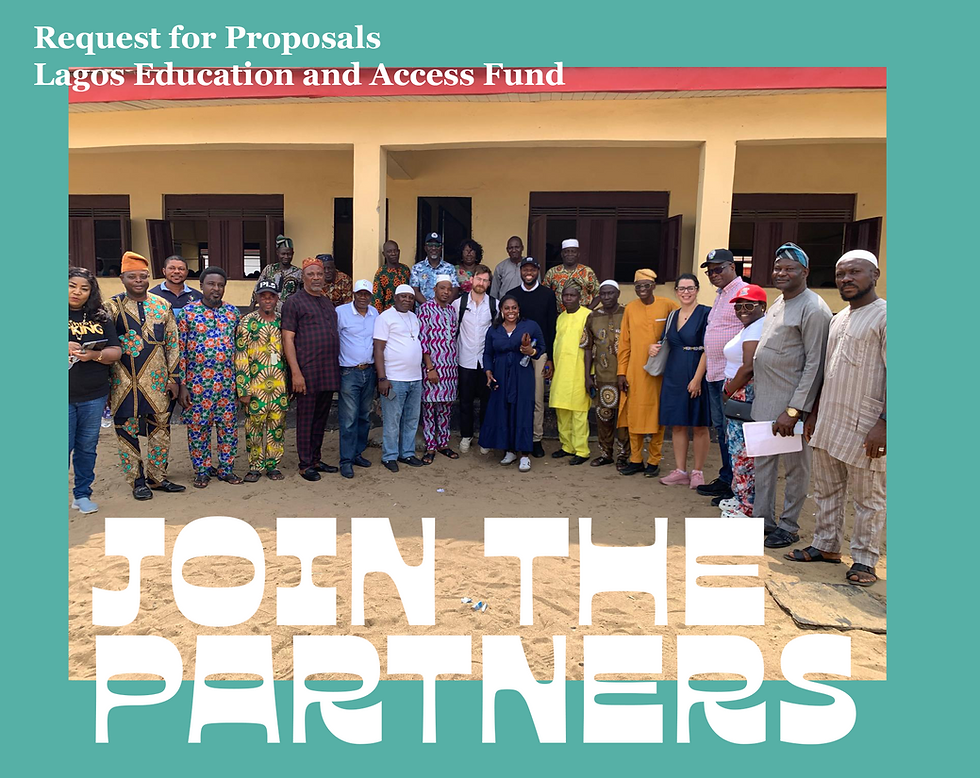Education Outcomes Fund and the LEGO Foundation Join Forces to Advance Early Childhood Care and Education in Rwanda and Sierra Leone
- May 24, 2024
- 3 min read
Updated: Sep 26, 2024
24 May 2024
LONDON — In partnership with the governments of Rwanda and Sierra Leone, the LEGO Foundation, and the Education Outcomes Fund (EOF) are launching two outcome-based funds to expand access to early childhood care and education. These pioneering initiatives, worth approximately US$15 million each, were announced during the Education World Forum, the world’s largest gathering of education and skills ministers. They will be funded by the governments of Rwanda and Sierra Leone, the LEGO Foundation, and public and private donors.

Through this partnership, EOF will work with the governments of Rwanda and Sierra Leone to oversee the effective implementation of the programs to increase access to early learning and education for 55,000 children in Rwanda and 50,000 children in Sierra Leone in rural areas. The initiatives will focus on improving the quality of existing community-based early childhood development centers and promoting learning through play to support holistic child development. EOF will also support implementing partners to generate insights and evidence to inform future education programs and policies throughout the program lifecycle.
“This partnership marks a significant milestone in our collective efforts to increase access to quality childhood education, particularly in the crucial early years of a child's development,” said Amel Karboul, Chief Executive Officer of the Education Outcomes Fund. “We thank the governments of Rwanda and Sierra Leone and the LEGO Foundation for joining us on this journey to provide critical skills to hundreds of thousands of children and create quality and sustainable early childhood education systems.”
This collaboration responds to the alarming data regarding early childhood care and education and the limited, inadequate and inefficient funding to the education sector, particularly for early childhood education, which is severely underfunded in low-and middle-income countries. According to the World Bank, only half of the world’s preschool-age children are enrolled in pre-primary education, leaving at least 175 million without the opportunity to acquire skills to succeed at the primary level. In Sierra Leone, 76% of children don’t have access to early childhood education, and in Rwanda, 78% of children do not have access to a formal early childhood services.
Karboul said outcome-based funds are a new opportunity to design effective programs that drive more impact in education. They are an innovative funding mechanism where the unique skills and resources of governments, donors and social investors are pooled together and only paid out once pre-agreed outcomes are achieved. This ensures donors’ funding is only used to pay for results and implementing partners have greater flexibility to support children, caregivers and their communities.
“Children develop a strong foundation for lifelong learning and the early years are pivotal for stimulation through play,” said Tarek Alami, Vice President, Head of Children’s Learning and Development at the Lego Foundation. “The LEGO Foundation is partnering with the Education Outcomes Fund in Sierra Leone and Rwanda to improve access and the quality of early childhood care and education. "We can use this model at scale to achieve a huge impact, deliver quality education, ensure that children are able to play and learn and fill the education financing gap to accelerate progress towards SDG 4.”
EOF will build upon its successful design and launch of the world's two largest education outcomes funds to date, in Sierra Leone and Ghana, to define the ‘playbook’ for how outcome-based financing can support the equitable expansion of quality early childhood education programs that are affordable for both households and governments.



Comments